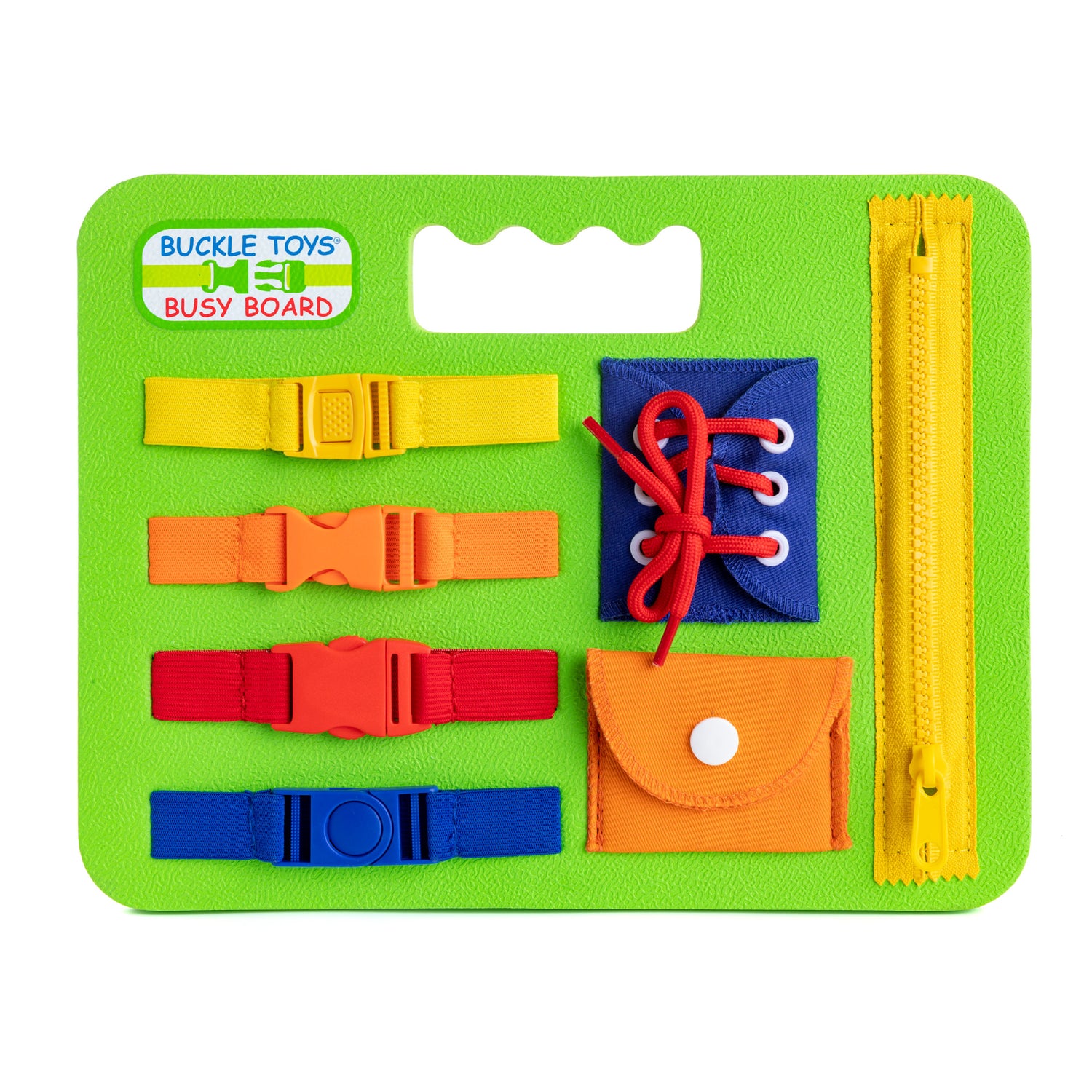Propping up your toddler in front of the TV for a few hours or handing them your iPad during a long car ride can seem like a very convenient way to keep them occupied and give you a little peace. However, as tempting as these solutions may seem, they may not be beneficial for your little ones.
The average child spends as much as seven hours a day in front of a screen or absorbing electronic media. According to the American Academy of Pediatrics (AAP), spending too much time in front of screens or on electronic devices can lead to issues as children get older, such as delayed language development and obesity. Although there is some debate on this topic, the AAP recommends that children ages 2-5 spend no more than one hour per day in front of a screen and to avoid screen time for children 18 months or less.
If we follow the AAP's advice, what other activities can we utilize to keep our kids occupied for longer periods of time?
1. Spend time reading books – Children’s books with lots of pictures and illustrations are great resources for capturing the attention of young minds. Reading books with our toddlers enhances the emotional connection they have with us, and introduces them to language, enhances their memorization skills, develops their associative skills, and expands their imagination. Eventually, a young child will begin to identify the actions they see on each page and associate those actions with the words their parents are reading to them. Soon, the child will be able to look at the book on their own and understand the characters, settings, and actions being illustrated on each page.
Over time, the child will develop word association skills and become a powerful young reader. The National Children’s Book and Literacy Alliance has some great resources available to learn more about the importance of literacy for young people, as well as a list of “Great Reads”.
2. Tell them to “go outside and play” – Previous generations did not have iPads or smartphones or computers that they could entertain themselves with. And when mom needed a break, she told her kids to “go outside and play”. And play they did, from sunrise to sunset, everything from kickball to building sandcastles to making mud pies. Getting children to play and be active outside benefits your child by allowing them to explore, be inquisitive, learn independence, develop better social skills, and be healthier.
3. Find creative ways to play inside – Some of the best screen alternatives your children can do to strengthen their young minds and bodies can be found within the four walls of their home. Arts and crafts projects that involve cutting paper or drawing lines are a great way to help toddlers build fine motor skills. Constructing a blanket fort in the living room can provide them with gross motor skills development and promote an imaginative play experience. Playing Hide and Seek can teach them how to be more investigative and use deductive logic while trying to find each other. Games such as board games or matching card games can help them to develop greater cognitive abilities, counting skills, and memorization.
4. Encourage play with early developmental and sensory toys – Engaging in frequent interaction with toys that provide an educational experience for your children is one of the best ways to develop their young minds and bodies. Toys focused on early childhood development and sensory stimulation help toddlers with developing fine and gross motor skills, as well as enhancing sensory functions such as touch, sight, and hearing. Many of these toys can also help toddlers learn to count, recognize different colors, and identify different shapes and animals. Some even teach more advanced life skills, such as zipping a zipper, telling time, and tying shoelaces.
As parents, it is paramount that we encourage our children to engage in activities that provide them with a solid foundation for physical and mental well-being. Encouraging playtime over screen time will help us to accomplish this goal and will lead to an increased sense of accomplishment and higher self-esteem for our kids as they grow older.

